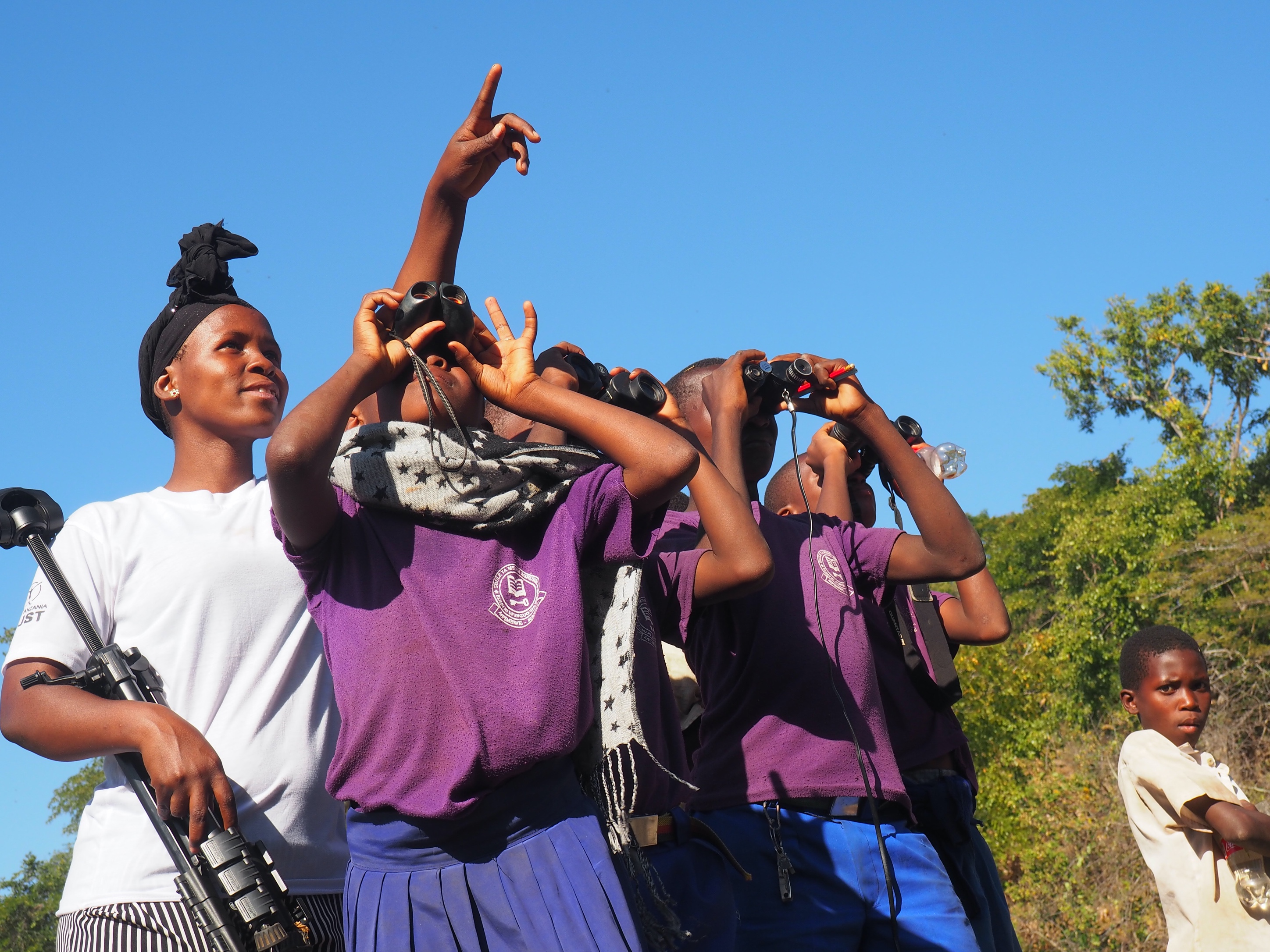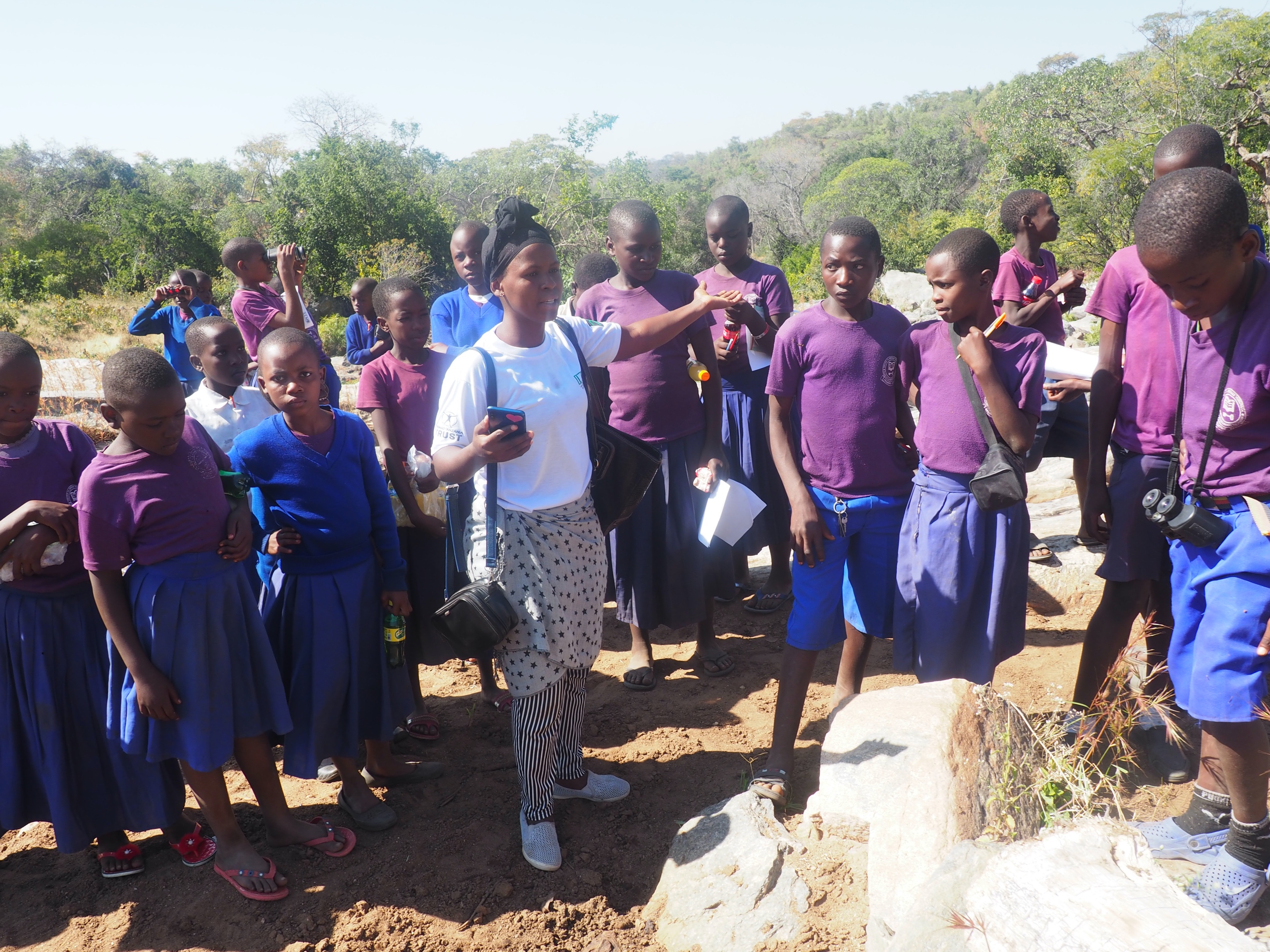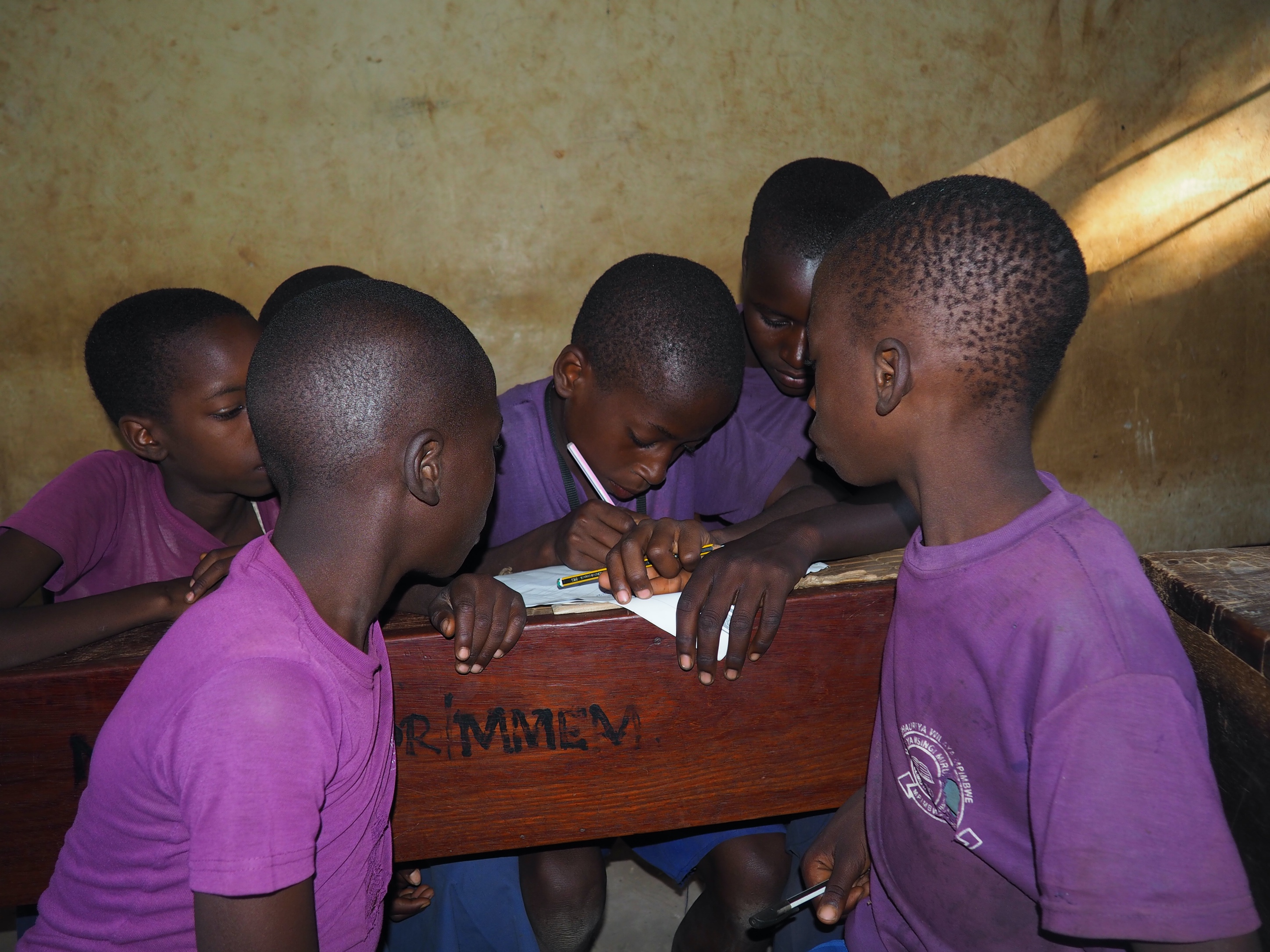
Checking in with Katavi, we are pleased to see that some of the conservation eco-clubs we sponsored this year have been busy out in the bush. Students recently took part in bird watching activities, wilderness & environmental education, and adventure based nature activities – visiting local waterfalls and other special sites; all part of the ecological study and conservation clubs with schools just outside the Katavi National Park.

One group of 40 students visited the Wildlife Management Area (WMA), which experience high encroachment for settlement, livestock keeping and illegal lumbering. They met with the management of the WMA to learn about the history of the WMA, its management, ecological and economical significance, challenges and appropriate measures that the community can take to secure it from human pressure. Another group of 30 students went on a tour to a nearby waterfall, where they learnt about the importance of water sources for people and birds and animals. Along the way they observed and learnt about the impact of harmful activities, such as stone harvesting that leaves the land barren and created areas for mosquito breeding; deforestation and charcoal burning and the harm it causes for wildlife habitats.

These eco-clubs give students a practical exposure into environmental issues. The trips are also a wonderful platform for students to learn about their surrounding environment and can get inspired to learn more and take action in their home environments. Students gain the confidence sharing what they learnt back in class and at home, and come away with a new appreciation for the environment and conservation.
